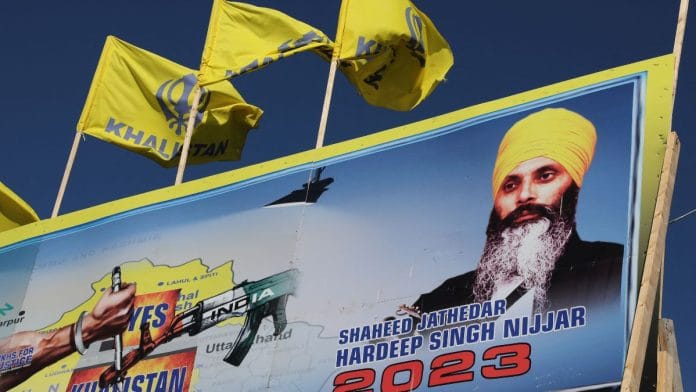New Delhi: India will act against any individual carrying out illegal actions in Canada if presented with evidence, High Commissioner Dinesh Patnaik said Sunday, pointing out that to date, Ottawa has offered none linking Indian officials to the killing of Hardeep Singh Nijjar.
Furthermore, India welcomes the proscription of Lawrence Bishnoi’s gang as a ‘terrorist entity’ by Canadian authorities as political ties continue to gather pace following consistent high-level meetings between the two governments in the last five months, Patnaik pointed out.
In an interview with CBC News, Patnaik said, “I will tell you something very clearly. We have made some accusations, allegations of activity within Canada in the past. One of the few things the Canadians always tell us is that our burden of proof has to be beyond a reasonable doubt and that people are innocent until proven guilty.”
He added: “And whenever we give them evidence that there are gangs acting, there are people acting against Indian interest, we are told this evidence is not enough. And we take them at their face value…When you [Canada] accuse us and we tell you we have not done it amnd this is not the case, there is no evidence, please accept us at the same value that we have accepted you.”
The interview took place hours after Prime Minister Narendra Modi met with his Canadian counterpart, Mark J. Carney, on the margins of the G20 summit in South Africa. The two leaders agreed to relaunch negotiations for a Comprehensive Economic Partnership Agreement (CEPA) that was suspended by the previous Canadian administration led by former Prime Minister Justin Trudeau.
Trudeau in September 2023 alleged that Indian officials were involved in the killing of Nijjar, an Indian designated terrorist. The allegations led to a diplomatic chill between New Delhi and Ottawa, culminating in a major diplomatic break in ties in October 2024, when India withdrew its High Commissioner and five other diplomats from its missions in Canada. India further expelled six Canadian diplomats, including the Acting High Commissioner Stewart Wheeler.
However, Patnaik was clear in his comments to CBC News that if evidence is shared, India would take action as it has in a similar case being investigated by American authorities over a foiled plot to kill Gurpatwant Singh Pannun, another Indian designated terrorist.
“But if there’s evidence presented in court, that indicates that… Then we will take action ourselves, like we are taking action in the U.S. But at this stage, you don’t have that evidence,” said Patnaik.
India’s envoy to Canada added: “We don’t have it. But you do know that there is a case in the United States where there is a connection. And we are cooperating with the United States to make… We do not want people to sully India’s image by doing activities abroad which are antithetical to exactly what India portrays.”
Patnaik highlighted that ties have picked up between New Delhi and Ottawa in the last few months, indicated by the number of high-level meetings, including the visit of Canadian Foreign Minister Anita Anand to India last month, and External Affairs Minister S. Jaishankar’s visit to Canada this month. The two prime ministers have met twice, including once in June and Sunday.
The security cooperation between New Delhi and Ottawa has resumed, with National Security and Intelligence Adviser of Canada Nathalie G. Drouin traveling to New Delhi for meetings with India’s NSA Ajit Doval in September. Canadian Minister for Trade Maninder Sidhu travelled to India a couple of weeks ago and held meetings with his counterpart Piyush Goyal.
“We are looking at the institutional framework meetings, which are meetings on nuclear issues, meetings on trade, food and fertilisers, students, education, you name it. Every sector we are discussing, and we’re discussing how we can move forward from what had been a chill. The good thing about the [diplomatic] chill was that nothing really, the building blocks of the relationship did not change much,” said Patnaik.
Despite this positive momentum, irritants remain, in particular Sikh separatists who have been conducting “Khalistan referendums” in Canada for the potential creation of a separate Sikh state carved out of India.
“See, it’s a farcical referendum, which you can hold. I mean, for us, having a peaceful protest or asking for something is part of a political process. We have no problem with it. In fact, in India, there are political parties which ask for the formation of a Khalistani government…You people know what referendums are. You’ve done referendums in the past. You know how farcical this is,” said Patnaik.
He added, “Referendums have a certain process. This is a referendum by Canadians done in Canada. Now, if you want to do it, you do it. The problem that happens only is that back home in India, they see it as Canadian interference, foreign interference in India.”
The Indian envoy raised the issue that during these referendums, the Sikh separatists also glorify violence against the Indian state, highlighting that a “fine line” exists between freedom of speech and hate speech.
(Edited by Varnika Dhawan)






